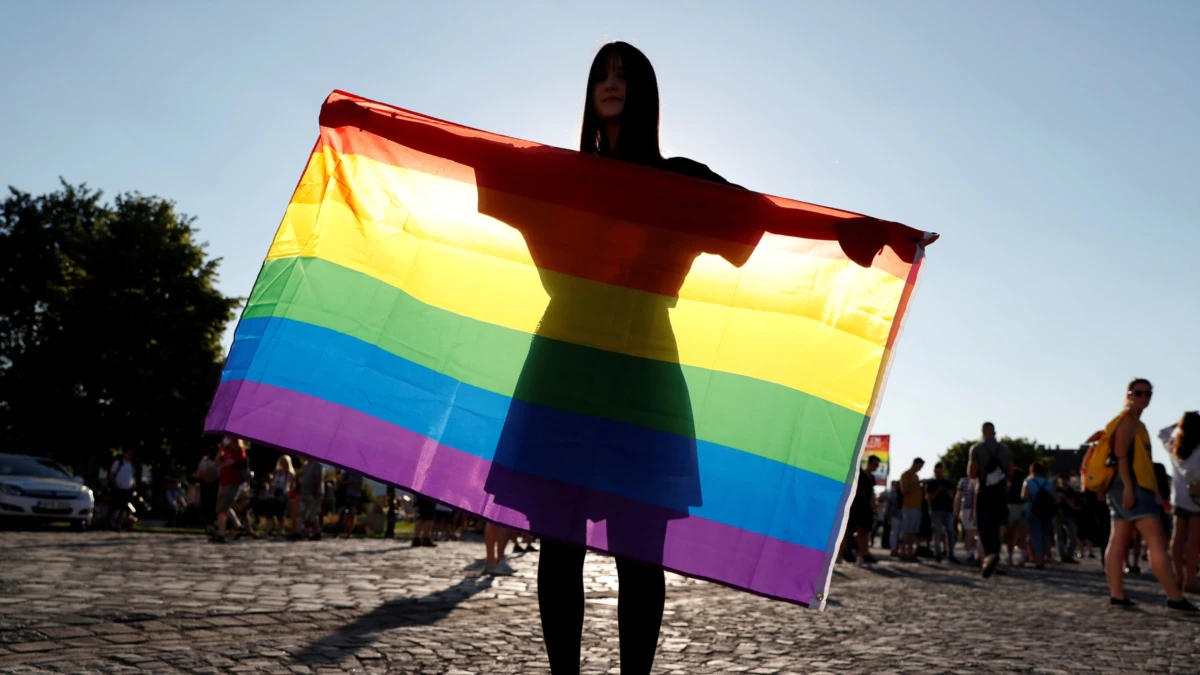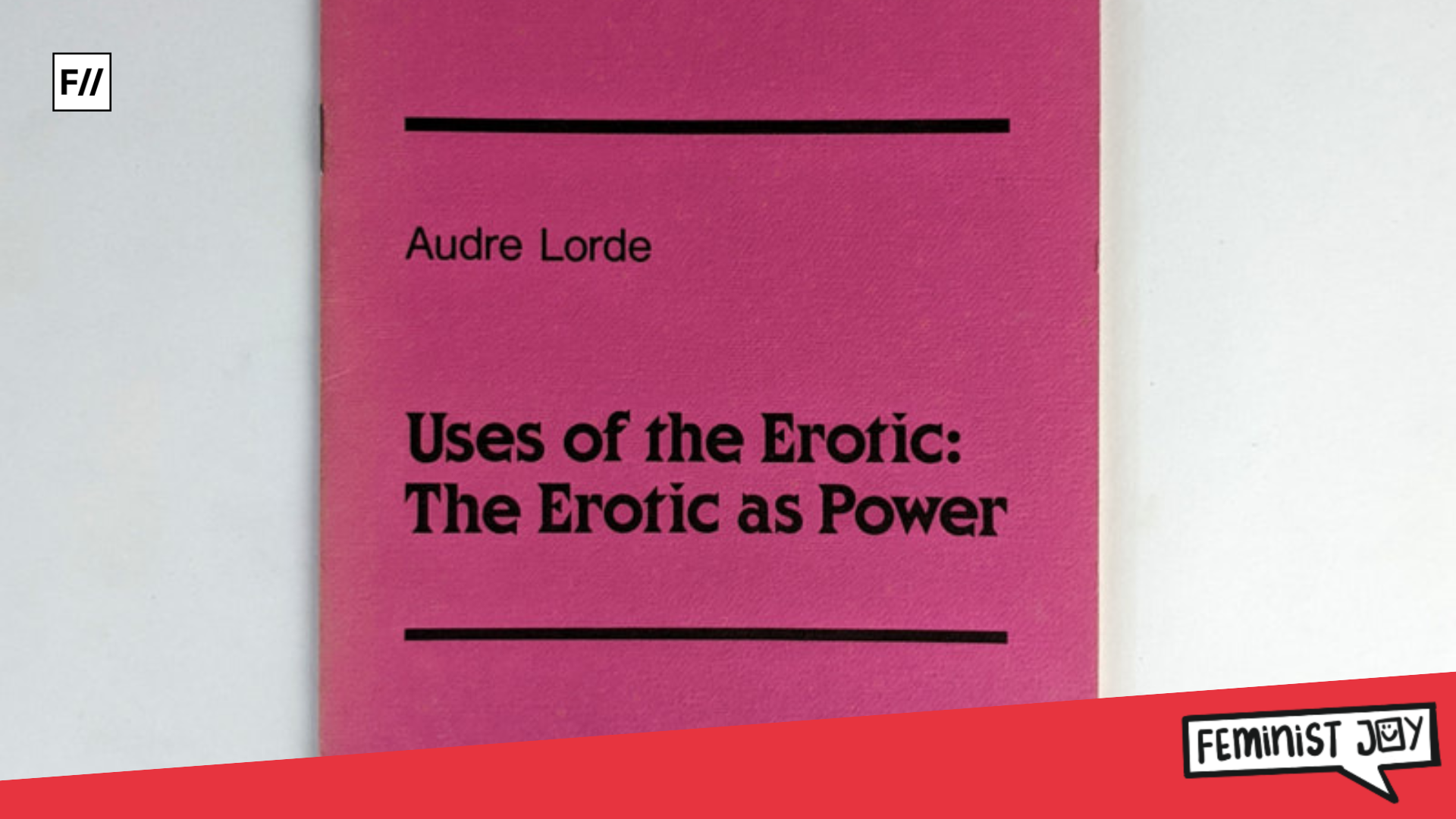Editor’s Note: FII’s #MoodOfTheMonth for June 2022 is Pride Solidarity. We invite submissions on the many layers of this theme throughout the month. If you’d like to contribute, kindly refer to our submission guidelines and email your articles to sukanya@feminisminindia.com
Trigger warning: Mention of queerphobia
“Where is the remote? Change the channel! What nonsense! These perverts!” It was my father shouting frantically from the living room, where he was watching the television with my mother. He was disturbed and angry. I was in another room but went to check out of curiosity. My parents were rolling their eyes and making faces as they discussed a piece of sensational news they had just seen on television: two young men from my hometown had eloped and gotten married in a temple.
Growing up in a typical conservative middle-class family in India, I had no idea for years that any sexuality other than heterosexuality even existed. Boys loved girls. Men married women. That is how it was. That is how it was supposed to be. But apparently, some youngsters were becoming “perverts” under the influence of Western culture and getting involved in “abnormal behaviour” that threatened our rich Indian culture. Thanks to my parents’ queerphobic attitude, I imbibed the same. I remember, as a high school student, I was quite queerphobic.

Something unexpected happened when I started college. As a girl who had never dated any boy or had a boyfriend in high school, I was hoping to fall in love and be in a relationship in college. There were some cute guys in my department, but I never felt inclined to date. I didn’t feel drawn even to the really nice guys who seemed to like me.
However, I wasn’t really worried about my inability to find a boyfriend as I had found this amazing best friend—a kind, funny, and soft-spoken girl whose very presence felt like warm sunshine. We used to hang out all the time, holding hands and talking about just everything under the sun. I had never before felt so comfortable with anyone else.
Also read: Experiencing Love As An Aromantic Asexual (Aroace) Person
Once I moved out of my parents’ home and began exploring life on my own, my horizons expanded, and I became more aware of the struggles and discrimination faced by the queer community. Thus, from being queerphobic as a teenager, I became an ally. I attended a few events conducted by the LGBTQIA+ community in my city and eventually learned about the concepts of asexuality and aromanticism, terms I had never heard of before
There was something magical about our connection, it was so deep, and it was surreal. One fine summer day, we were hanging out after classes, as usual, just two happy, dreamy college girls. Our eyes met and it finally hit me: I was in love with her! She smiled and I knew she knew it too.
For me, realising that I was in love with a girl wasn’t easy to accept but it was also not something I could deny. In the ensuing months, I started dreaming about being in a platonic marriage with her and adopting a baby and a dog. Some of my other friends began wondering if I was a lesbian. However, I wasn’t.

Yes, I was in love with a girl, but my feelings for her were purely platonic. At this time in my life, I was thoroughly confused. While it was apparent to me that I had no sexual interest in boys, I also didn’t have any sexual interest in girls despite being in love with one. So, I was neither straight nor lesbian. What was I? Even as I struggled to figure out my sexuality, I pretended to be heterosexual because I wanted to be considered “normal” by the society.
In the ensuing years, I was platonically drawn to a few other girls and one boy and was often questioned about my sexuality. Even though I still maintained that I was “heterosexual,” deep inside my heart, I knew I was “different.”
Also read: What Is Aromanticism?: Dismantling The Mainstream Idea That All People Want Romantic Relationships
Pretending to be “heterosexual” was convenient. As someone who was queerphobic at a time, it felt unnerving to accept my own queerness. The Covid-19 pandemic and the ensuing lockdown changed it all. Cooped up in my home in isolation, I had more than ample time to introspect and figure out myself. Eventually, I mustered the courage to acknowledge my asexuality and aromanticism
Once I moved out of my parents’ home and began exploring life on my own, my horizons expanded, and I became more aware of the struggles and discrimination faced by the queer community. Thus, from being queerphobic as a teenager, I became an ally. I attended a few events conducted by the LGBTQIA+ community in my city and eventually learned about the concepts of asexuality and aromanticism, terms I had never heard of before.
The more I read about these spectrums, the more I could resonate. I began questioning myself: could I be asexual? And also aromantic? As much as I resonated with these terms, I still couldn’t find the courage to admit to myself that I could be queer.

Pretending to be “heterosexual” was convenient. As someone who was queerphobic at a time, it felt unnerving to accept my own queerness. The Covid-19 pandemic and the ensuing lockdown changed it all. Cooped up in my home in isolation, I had more than ample time to introspect and figure out myself. Eventually, I mustered the courage to acknowledge my asexuality and aromanticism.
I also figured out that one could be asexual and aromantic and also experience tertiary forms of attraction as I did. Finally, everything I had been confused about myself began to make sense. I declared myself to be aroace (aromantic/asexual) with pride on my social media profiles.
At last, I felt at peace with who I was. Not having to pretend to be someone I wasn’t was a big relief. I’m an oriented aroace and a proud member of the vibrant LGBTQAI+ community.
Featured Image Source: Radio Free Europe
About the author(s)
Namrata is a freelance writer + vegan blogger + intersectional feminist. Against all forms of oppression, she’s on a constant journey of unlearning her internalized misogyny.




